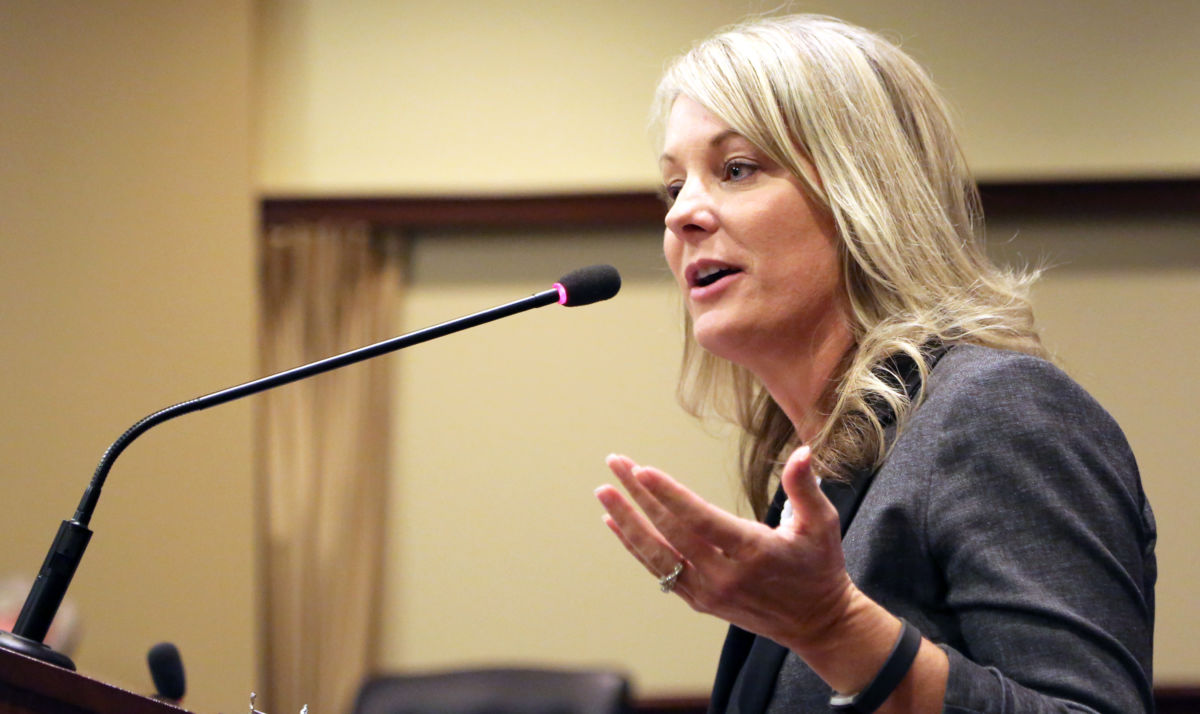State superintendent Sherri Ybarra’s rural schools bill is dead, for the second straight year.
Instead, lawmakers and education leaders will meet informally to discuss rural education issues, and perhaps come up with a proposal for the 2018 legislative session.

“I think we’ll be able to get there,” Sen. Dean Mortimer said Tuesday, after his Senate Education Committee met for the final time for the 2017 session.
For the past two years, Ybarra has been pushing to create a Rural Education Support Network — a pilot program designed to help rural districts share hard-to-find teachers, collaborate on courses or stretch limited dollars. The House passed rural pilot bills in 2016 and 2017, clearing the House this year on a narrow 37-33 vote, but Mortimer has held the bill in committee each year.
In an interview Tuesday, Mortimer said schools already have the legal authority to develop cooperatives — and do most of what Ybarra sought to accomplish through a $300,000 rural pilot.
However, Mortimer hopes the informal committee will help build more support for a rural schools initiative. He’d also like to see this group work with a second group — a legislative committee that will spend the off-season studying ways to revamp the state’s 23-year-old school funding formula.

In a statement Tuesday, Ybarra said she was disappointed by Mortimer’s decision.
“Many rural school district superintendents and principals are drowning in their workload, which takes time away from students,” she said. “Establishing Idaho’s first Rural Education Support Network would be a step in the right direction to providing the support and resources rural districts desperately need.”
The rural education group is informal, so it has no set membership. Ybarra’s State Department of Education was represented at Tuesday’s initial meeting, as was the State Board of Education, education lobbyists and business groups. Mortimer and House Education Committee Chairwoman Julie VanOrden also attended.
Education-related budgets pass House
The House continued its march toward adjournment Tuesday by passing three education-related spending bills.
Despite considerable debate over one of the budgets, legislators ended up comfortably passing 2017-18 budgets for the STEM Action Center, career-technical education and the State Board of Education.
House Bill 295 would increase state general fund spending for the Division of Career-Technical Education by 5.3 percent above current levels, up to $65.3 million. The new budget would invest almost $1.9 million in expanding sought-after career-technical education programs at 11 postsecondary schools or institutions in order to alleviate waiting lists.
The House passed the CTE budget 68-4.
House Bill 298 funds the STEM Action Center. Launched in 2015-16, the STEM Action Center is the state’s vehicle for promoting the academic disciplines of science, technology, engineering and math.
One big change in this year’s STEM Action Center budget is a $2 million increase in spending authority for Idaho’s new computer science initiative.
Sponsoring Rep. Van Burtenshaw, R-Terreton, said the STEM Action Center anticipates reaching 80,000 students this year through events and outreach.
Rep. Gayann DeMordaunt, R-Eagle, said Idaho is home to a fast-growing tech sector but was still unable to fill 3,800 STEM-related jobs last year.
The STEM center budget passed 63-7.
The House passed House Bill 300, the State Board’s annual budget, after considerable debate.
The State Board’s budget contains an unusually high 60 percent increase in state general fund spending. Much of that increase would cover a $1 million initiative to provide additional oversight of the teacher evaluations process.
Last year, the Legislature took oversight of teacher evaluations away from Ybarra’s SDE and gave that responsibility to the State Board — with both parties agreeing to the swap. Budget-writers again sided with the State Board this year, awarding the line item to that office and rejecting Ybarra’s competing request for $300,000 for evaluations training.
Teacher evaluations have become increasingly controversial amid reports of errors, inconsistencies and omissions. Evaluations are the accountability piece tied to the Legislature’s $250 million plan to raise teacher pay through the career ladder salary law.
Several House conservatives balked at the State Board spending increase.
“I came (to the Legislature) to represent my constituents, and I believe in fiscal responsibility,” said Rep. Karey Hanks, R-St. Anthony. “I feel that somewhere we need to turn off the water spigot.”
In the end, the House passed the State Board budget on a 48-22 vote.
All three spending bills next head to the Senate for consideration.
House and Senate leaders have long signaled their hope to adjourn the 2017 session later this week. In order for that to happen, the House and Senate must continue to pass state budgets.
Idaho Education News reporter Clark Corbin contributed to this report.
